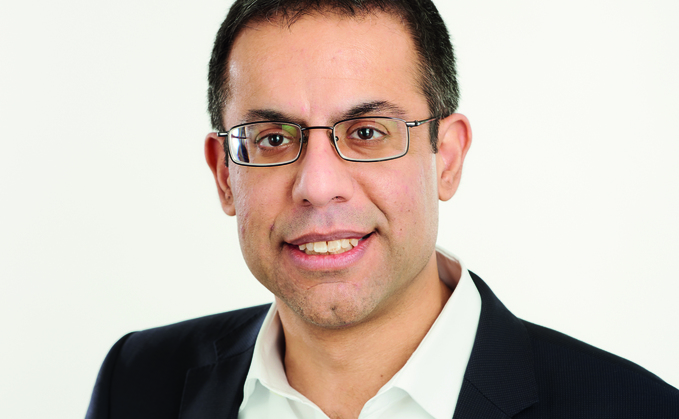
Aaron Punwani: On its own, the current trend of compliance reporting requirements is not going to be of much help to the planet and society
There needs to be a "radical re-interpretation" of trustees' fiduciary duty if pension scheme assets are going to be part of the climate change solution, Lane Clark & Peacock chief executive Aaron Punwani says.
In an article published by Professional Pensions yesterday (31 August) - The guilty reality of pension scheme action on climate change - Punwani noted that, as they increasingly move towards endgame and buyout, defined benefit (DB) scheme trustees have little interest or engagement in considering climate change issues beyond regulatory compliance.
He said: "Given trustees' responsibility to their own scheme, their primary fiduciary duty to make their own members' benefits secure, and the fact that their holding in growth assets is both small and temporary, many trustees understandably feel that the direct impact they can realistically have on changing the outlook for climate change is limited."
But he noted that if the fiduciary duty of trustees changed so they had to consider the lifetime of their members - including post-buyout - in their time horizon, it could bring a huge amount of assets back in scope in terms of influencing action on climate change.
Punwani explained: "It's becoming increasingly clear to me that if pension scheme assets are going to be part of the climate change and energy transition solution, this will require more than the current actions - we need a radical re-interpretation of trustees' fiduciary duty, in two dimensions."
He said the two key areas where fiduciary duty needed changing included a clarification that fiduciary duty includes consideration of members' best financial interests over the remainder of their lifetime so that DB trustees can legitimately think beyond buyout - with the onus being placed on the trustee board to decide how much weight it wishes to place on this consideration relative to others.
Punwani said clarification that trustees may have regard to the real-world impact of their investment decisions, not just the impact that external ESG factors have on their scheme's investments was also needed - noting this was relevant not only because those real-world impacts would take place over their members' lifetimes, but because they will have an impact on the stability of financial systems, and thereby the security of pensions, long before the worst impacts of climate change (if left unchecked) may be felt.
The impact of change
With these changes, Punwani said the changes in behaviour resulting from these changes would include a shift from being driven by regulatory reporting to a focus on real world impacts; trustees being able to look beyond the financial performance of the pool of assets they directly control; and, when it came to buyout, a shift to favour insurers who invest sustainably and commit to use their own influence to bring about positive change.
He said the changes would also influence how schemes invested in government bonds - especially if the newly interpreted fiduciary duties were to make trustees put in place conditions that the money it lends to government is used to shape a more positive future.
Punwani explained: "My goal is simply to encourage a constructive debate on these issues. This is not a lecture to anyone on how they should invest their pension scheme assets. But let's be open about the fact the current trend of increasingly onerous compliance reporting requirements is not going to be of much help to the planet and society unless it is also accompanied with a re-interpretation of trustee duty to support meaningful real-world action."
Read more:
Aaron Punwani: The guilty reality of pension scheme action on climate change









